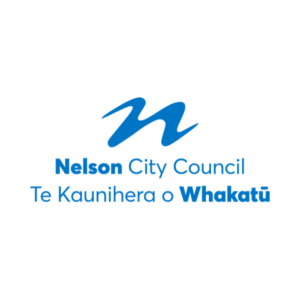

The in-house legal team at Te Kaunihera o Whakatū Nelson City Council is a small but mighty legal function. The team is responsible for providing legal services to the whole council — spanning a breadth of subject matters including public law, regulatory and enforcement law, litigation and dispute resolution, commercial contracts, and property law.
Fiona McLeod, General Counsel, came on as the first department member in 2017 and has since scaled the team to three legal positions and one administrative position. The team also engages an external legal panel as support when resource requires.
“There’s kind of a ‘business as usual’ which has a certain predictability to it. But when you’re in local government you do just have to respond to what’s happening — floods, fires, pandemics. Local councils are really at the coalface of these events in terms of having to apply laws and regulations in a local context while also just being the face for the community,” says McLeod.
Faced with these daily complexities and a growing team, McLeod brought on LawVu to provide continuity and connection within the legal team and to its many stakeholders.

Before LawVu, McLeod used spreadsheets and email to manage work and keep records of received requests. The limitations of this way of working soon became apparent when the team grew to two members.
“The spreadsheet was pretty clunky, and we could only have one person working on it at a time. With multiple team members accessing the spreadsheet, it also became too easy to corrupt,” explains McLeod.
The team could not attach documents to line items in the spreadsheet and could not use it to engage directly with internal stakeholders or external counsel. The team found themselves constantly switching between systems. This wasted valuable time and also opened up the possibility of work falling through the cracks.
Information was also siloed across different team members’ inboxes so there was very limited ability to gain full visibility and report on the work the team and external lawyers were working on.
“With information in multiple places, we couldn’t easily aggregate it for reporting.”
McLeod had been in touch with other local government legal teams who recommended LawVu. “I also had experience working with matter management systems in previous private practice roles. Compared to other solutions available in the market, what appealed to me about LawVu was that I knew that it had been specifically designed with in-house legal teams in mind. It had been designed by professionals who had worked in-house themselves, so I knew it would be a product that would understand the way that we do business.”
The LawVu legal workspace is designed to scale with any in-house legal team depending on its needs.
“The beauty of LawVu is that we have had a few phases of rolling out the different capabilities within the workspace. It’s so well designed to do this and we were really quick to get up and running and see value,” says McLeod.
As a part of the implementation process, the LawVu team advised and guided the team on its initial setup of matter types and fields within the system. This ability to configure the workspace to the team’s needs has been a huge component of the ongoing success of LawVu.
As well as the matter management capability, the team also implemented the vendor engagement capability from the beginning. “We immediately rolled vendor engagement out with our legal panel because one of the key things I wanted was efficiency in terms of having that record around the scope of the engagement, the estimate of costs, and the ability for the law firms to upload their invoices. This was so we could start to capture the information and report on external legal spend,” says McLeod.
The next step for the team is to roll out the LawVu Business Portal feature. Currently, all requests come into an ‘Ask Legal’ email address. This email is then manually saved to the relevant LawVu matter. To improve efficiency, the team plan to roll out the portal to manage intake and self-service. This removes the need for email and provides a simple user interface for council officers to submit requests and have them automatically added to a matter.
“We like the fact that we will be able to host a link on our legal services intranet homepage that will open up the LawVu landing page — but to the council officers submitting the request it will just look like a company page. Then they will have a simple way of making a structured request and the information will go straight into LawVu. It removes an extra step.”
The other benefit is that council officers will be able to check the status of their matter without having to engage in email back and forth with the legal team.
“We now use LawVu across every aspect of our work: at team meetings to allocate new requests to the right lawyer; to assign work to external lawyers, including scoping and tracking costs; to report on business unit managers work and any trends we’ve identified. We also use LawVu to report to the senior leadership team on emerging risk areas, trends, and overall legal costs. All of this happens with very little administrative overhead, freeing up time for us to get on with the work, and think about how we might do things better” – Fiona McLeod — General Counsel, Nelson City Council
“It’s sort of hard to think back to using a spreadsheet, it was so long ago. Using LawVu is now just second nature,” says McLeod.
Bringing together the team’s workflow into one system has been beneficial for business continuity, as well as connection within the legal team through collaboration and visibility.
“We know that we are now capturing everything. All requests come to a central email address and are assigned to a LawVu matter. We don’t have things that fall through the cracks.”
With everything in one system and the dashboard views that the team can create, they can have visibility into their work. “I can clearly see all of the new requests we’ve received over the last fortnight and can sit down and talk about those at a team meeting and make sure that they’ve all been allocated to the responsible lawyer,” explains McLeod.
Having the ability to report has demonstrated the value of the legal department back to the organization and senior leadership. “I can sit down with a business unit manager, and see the list of requests for legal advice that we’ve currently got going on with that business unit. I can see what current requests for legal advice we have with all of the different law firms. I can also see the requests that my team members are responsible for.”
“The LawVu legal workspace has given me that one-stop shop for managing all of our legal work. I just couldn’t do this with a spreadsheet,” says McLeod.
There have also been added benefits from the data captured in LawVu that the team never initially planned for. A recent example was justifying the spend for bringing additional permanent resource into the team. “I was able to compare a period of time where we had an in-house lawyer to do our contracting and procurement legal work with a period of time where we had to use an external lawyer. So I could easily demonstrate the value of having that in-house position. It wasn’t something I’d planned to do, but that’s the benefit of the type of data that we’re collecting.”
It’s now easy to demonstrate the value of the in-house legal team because they have a record of the types and volume of legal requests. “We can see the volume of work that’s coming in. I can identify how much of that work’s being done in-house by our legal team, I can identify how much of it’s been outsourced, and I can give a monetary value to the in-house component and what it would cost if we didn’t have an in-house team,” says McLeod.

Not only has engagement improved between the legal team and the wider organization, but so has the relationships with the external panel.
LawVu has improved our relationship with our panel law firms because through using the system it’s very clear the matters they are assigned and what we expect them to complete. There is a clear scope of work and they will always need to do an estimate of costs based on this, as opposed to having to communicate that every time or chase emails,” says McLeod.
The team runs regular reviews with their panel, including a review of LawVu’s use. Adoption of the workspace by the external panel has been really successful because the team established a working together protocol from the get-go of bringing on LawVu. This protocol governs the team’s expectations around the use of LawVu. “We just make it really clear that this is a tool that we ask them to use and it makes our life easier as the in-house legal team. They all appreciate this.”
McLeod also places a lot of importance on getting the key administrative people at the panel firms on board with LawVu to support the staff and ensure use of the system. “If the secretary or personal assistant can become a champion, then that works really well,” says McLeod.
Ultimately, with improved productivity and engagement, the team has been able to shift the way they spend their time and are now well placed to work proactively and truly demonstrate their function’s impact on the wider organization.
“We’ve had a goal of moving into a more proactive space with our business units rather than being the ambulance at the bottom of the cliff. With LawVu, we can now attend our quarterly business meetings and discuss what kind of work they might have coming down the pipeline and when might be a good time to engage with legal. We can show them the work in LawVu that we currently have on the go with them. And we can also identify where there might be any trends, risk areas, or repeat requests that we can see coming through from their team members. That gives us an opportunity to talk about how we might be able to develop self-help tools, and guidance checklists to enable their teams to do that kind of work and not necessarily need bespoke legal advice every time. Having the information from LawVu enables us to do that,” explains McLeod.
By implementing LawVu the team now realizes the valuable time that they have gained back to spend on the strategic, high-value work they are all trained to do. This allows the team to increase the efficiency of the work coming through the department, as well as provide a more valuable service to the wider organization.
By clicking subscribe I acknowledge and accept the terms of the LawVu privacy policy (found here) and consent to receiving marketing emails from LawVu to stay up to date with news and events (you can unsubscribe at any time).
LawVu Head Office
26-28 Wharf Street, Tauranga 3110, New Zealand